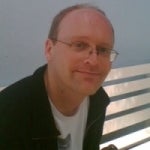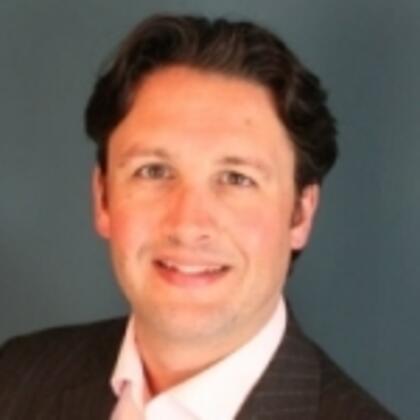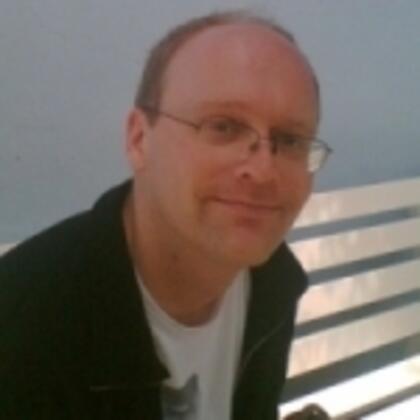Science Fiction as a Literary Genre: Science Fiction in the Nineteenth Century
Share
- Details
- Transcript
- Audio
- Downloads
- Extra Reading
The second part of this symposium includes the following talks:
Science Fiction in the Nineteenth Century - Dr Martin Willis, University of Glamorgan
Modern British Science Fiction - Dr Roger Luckhurst, Birkbeck, University of London
Closing Remarks - Professor Tim Connell, Fellow of Gresham College
Download Transcript
8 May 2008 Science Fiction in the Nineteenth Century Dr Martin Willis For many critics of science fiction, I would be the stooge - the one who forgot to take a step back when the sergeant-major asked volunteers to step forward, the one who drew the shortest of straws from a handful of apparently similar lengths. This is always the role of the speaker invited to talk of nineteenth-century science fiction. Because science fiction never existed in the nineteenth-century; science fiction is the literature of the modern world, of the moment, the now, even the future. There is a quiet assumption that an interest in nineteenth-century SF reveals an out-of-touchness, a stepping away from the vibrant debates of the present to indulge a faintly unrespectable fascination with the long outdated. The scholar of nineteenth-century SF is rather like Middlemarch's awkward academic Causabon, seeking the key to all mythologies in the dead past. This is often the project of discussions of science fiction in the nineteenth-century; the search for origins in a series of defining ur-texts. And these texts have not changed a great deal since Hugo Gernsback talked of the 'Edgar Allan Poe, Jules Verne, H.G. Wells type of story' in the 1920s. Add the maternity of Mary Shelley's Frankenstein to this list of father-figures and it is largely complete. Indeed if we do not think outside of these characteristics of the critical debates we could quite easily reproduce the countless articles and book chapters that have said much the same thing for decades. So let us turn things around a little: let us begin not from within the SF critical canon, but outside it, or on its margins at least, within other genre fictions. If we consider the strangeness of SF's relationship to the nineteenth century as a critic of gothic literature, things would seem rather different. The study of gothic literature has grown as greatly as that of science fiction over the last two decades. Alongside this, there has been enormous growth in those literary artefacts that might be called gothic, or which, we might better say, have been assimilated into the generic canon of the gothic. Now critics of the gothic flinch not at all in calling Emily Bronte's Wuthering Heights an example of the gothic, or viewing Dickens' Bleak House as Victorian urban gothic. The same might be said of critics of detective fiction. While it has never been problematic to place the roots of detection in the work of Poe or Conan Doyle, now Charles Dickens, Wilkie Collins, Mary Elizabeth Braddon and a host of others are all equally fictions of detection. Why has science fiction not undertaken a similar project of genre gathering? Perhaps SF's own interrogations of colonialism and imperial expansion have, to some extent, situated the genre in ideological opposition to any form of expansionist undertaking. And it would be reasonable to suggest that other genre's attempts to expand their own canons have undermined their claims to be genres at all; if almost anything can be said to be gothic, for example, how is gothic a useful label? Let us consider then, a field of inquiry that it is the other side of the science fiction coin: the interdisciplinary study of literature and science. These two areas of academic inquiry should be close cousins, but this has not been the case. More interestingly, the study of literature and science is dominated, to an extraordinary degree, by studies of the nineteenth-century. For this community of scholars the Victorian period, in particular, is littered with poetry, novels, short stories and other prose writing in which science plays a key role. To give some examples, the recent British Society for Literature and Science conference hosted presentations on the importance of science in Tennyson, Wilde, Wells, Hardy, Shelley, Carlyle, Dickens, Haggard, and Stoker, and those are just the papers I listened to. Surely it is surprising to discover so much science being imaginatively constructed or re-imagined in fictional contexts across the nineteenth century, and yet not to find science fiction scholarship claiming some of it as examples of its own genre? Why is science fiction so reluctant to engage with nineteenth-century writing, or to see a key period of its own evolution there? For me, it is the problem of how science has been, and to some extent continues to be, treated in SF criticism. I want now to turn to this. The two keynotes of the early SF debates (in the 1970s) were the boundaries of the science fiction canon and the importance of science as a context for fiction. The views that came to dominate in each of these areas of discussion are that views that have continued to hold sway over contemporary science fiction criticism. In the first, science fiction has come to be seen as a genre that has its beginnings in the early twentieth century with some important precursors in the late nineteenth century. In the second, the importance of science has been relegated to that of a checklist against which the critic can check the correctness of a fiction writer's knowledge of scientific fact. The supremacy of these critical positions has led to a disregard for nineteenth-century science fiction and the history and philosophy of science that was so influential in the creation of these fictions. This is a bold claim to make but it is not made without justification. Although many critics of science fiction (both nineteenth and twentieth century) do recognise the importance of science as a foundation for the work of SF writers very few investigate that science in a sustained and analytical way. Science is viewed by the scholarly community in two ways, neither of which is particularly productive in gaining further insight into the literary text. First, science is considered as 'fact' and the SF text read only to discover if the writer has the facts of science correct. Second, science is seen as nothing more than a chronological checklist of events and discoveries within which the SF text can be placed. In the first instance Arthur C. Clarke is widely considered a 'good' writer of SF as he is remarkably precise in his scientific detail. In the second Aldous Huxley can be seen as a visionary because his Brave New World prefigures many later discoveries in genetic engineering. That science has been reduced from a vibrant set of political and social cultures to an encyclopaedic entry or a set of facts is in itself surprising. Early science fiction critics - while not investigating the scientific contexts of SF in any detail - were proponents of a critical practice that would include substantial investigation of the scientific influence on SF. In 1976 Robert Scholes and Eric Rabkin insisted that: As the literature of science, science fiction can be most richly experienced if we understand something of science itself - science is of interest not only as a necessary tool in understanding science fiction but as a demonstration of the nature of the materials that originally motivated science fiction.[i] Although they are rather vague over the "something of science" that critics should understand, Scholes and Rabkin highlight science as an essential element of the SF genre. Patrick Parrinder, an astute critic of the contexts of science fiction, placed Scholes' and Rabkin's view in a historical frame: The period of ascendancy of the scientific outlook - an ideology justifying scientific research as intrinsic to the nature and purpose of human existence - began with the technological triumphs and the erosion of traditional religious beliefs caused by the Industrial Revolution. The growth of science fiction as a separate genre would be unthinkable without this ascendancy.[ii] As Parrinder's opinion proves there were critical voices calling for an interrogation of the historical development of science alongside any investigation of science fiction. Yet there still remained some scepticism over the relevance of science to science fiction: The problems of writing about the relationship between science and science fiction are manifold. It is necessary not only to define one's terms but to dispel the widespread suspicion that the relationship is accidental rather than essential.[iii] As Parrinder here reveals, the connections between science and science fiction, however often they were paraded by a number of critics, were not readily accepted. Robert Philmus, in his 1971 critical monograph, which we should remember was the first full-length scholarly work on SF, argued that "science fiction, I still maintain, is not as strictly dependent on an extra-literary reality as the extrapolative theory of its nature unavoidably suggests."[iv] Contemporary SF criticism has accepted Philmus' views more than they have Parrinder's. It has also gone along with Scholes' and Rabkin's assertion that knowing something of science is useful. The "something" has, however, been the scientific fact or the encyclopaedic list. Recent critical readings of science fiction clearly verify this. Gary Westfahl, in a 1996 monograph on hard science fiction, Cosmic Engineers, explains why he will not concentrate on the scientific aspects of the science fiction he aims to discuss: While my B.A. in mathematics and experience teaching math at the college level arguably provide minimal qualifications, I am not a scientist and do not feel fully qualified to discuss purely scientific issues. My considerations of the complex relationship between science and hard science fiction will be limited to some basic comments about the scientific process and the eventual conclusion that some type of purely scientific evaluation is a necessary element in examinations of hard science fiction.[v] Westfahl regards science as factual knowledge that is either known or not known. His failure to understand scientific fact makes him, in his own opinion, unable to judge the scientific content of science fiction that deals explicitly with science (as hard science fiction purports to do). Yet Westfahl does not recognise that science is a cultural phenomenon as much as it is a discipline of fact. This failure leads him to make claims for science fiction that are hugely misleading: I am now prepared to venture a different hypothesis: namely, that despite public pronouncements, science fiction was in fact largely indifferent to science before 1950 and conspicuously tolerated frequent errors and inattentiveness to scientific fact and scientific thinking.[vi] Westfahl's determination to view science only as fact allows him to cast out all other facets of science employed by science fiction writers. It is historical revisionism to argue that neither Mary Shelley nor H.G. Wells was interested in science even if their scientific facts reflect the understanding of a layperson rather than a scientific specialist. Rather, Westfahl rejects the importance of science's place within the human cultural sphere; one of the key themes of a great majority of science fiction. Even when there is recognition that science takes place within a social and political world it still receives cursory treatment. The publication of a recent collection of essays on disease and medicine in science fiction suggested that a critical renegotiation of the importance of science might be underway.[vii] This was reinforced on the opening page of H. Bruce Franklin's essay on Frankenstein: "To comprehend the relevance of Shelley's achievement to our medical environment today, we need to look at the medical environment of her day, including both its history and its direct effects on her own life."[viii] Yet what followed these introductory remarks was a chronology of obstetrics from the eleventh century to the early nineteenth century that only in the latter stages was made relevant to Shelley's own life, if not her fiction. This encyclopaedic referencing of science is common. Even Thomas D. Clareson, one of the most sympathetic critics to the importance of science, could say firstly that he hoped his work would "help us to understand the manner in which writers have made use of materials which they regarded at the time they wroteas having a basis in science" and then offer nothing more than a chronological list of scientific discoveries as evidence.[ix] The history of science fiction criticism has militated against an extended reading of science fiction and the cultures of science in the nineteenth century. It has denied nineteenth-century science fiction a significant place in the canon and has reduced science to factual knowledge. Even those critics - Patrick Parrinder, Thomas D. Clareson, Eric Rabkin, Robert Scholes and others - who have registered the importance of contextualising science fiction within the scientific culture of its own period have not taken the opportunity to produce a piece of scholarship that reveals the benefits of such investigation. Like Mark Rose, who introduced his own work by stating that "an extended discussion of the milieu - would include - an account both of nineteenth-century science and of the growth of popular interest in science," they offer the opportunity to other scholars.[x] No-one has yet taken up their offer, although recent scholarship has suggested that a return to historical context, at least, is imminent. The recent collection of essays on SF and medicine, despite surveying the field too superficially, did focus on the sciences as an important element in science fiction. In another recent collection, Farah Mendlesohn made an explicit plea for the introduction of "alternative approaches and methodologies to science fiction criticism."[xi] She concludes: If science fiction is to have a respected place in the canons of the academy - which presumably is a goal shared by all of its supporters - then the genre must be considered as more than a collection of texts aspiring to be recognized for their literary excellence. Today, with science fiction forced to compete within literary criticism on the basis of a value system designed for a very different form of writing, it is imperative that, in at least one area of academic discourse, science fiction should be taken on its own merits and values and examined in its own historical and social context. I contend that historians, not literary critics, are best situated, and most qualified, to make these contributions.[xii] Mendlesohn's argument is a strong one, based upon a correct reading of the present state of science fiction scholarship. The historical and social contexts of science fiction, which would of course include science itself, have been consistently undervalued in SF criticism. Where Mendlesohn's argument is contentious is in her final statement. It may well be that historians are best suited to discuss history but this does not mean they are best suited to discuss history through the lens of the literary text. Yet historical expertise is essential, particularly in a project such as the present one, where the history of science is given prominence. Mendlesohn's final comment is actually about the necessity of interdisciplinary study; for her, the disciplines of literature and history. Her certainty about the historian's ability to undertake an interdisciplinary analysis of science fiction is paralleled by Gary Westfahl's certain belief (quoted earlier) that he is not well enough qualified to discuss both literature and science. Yet this belief is founded on an understanding of science as scientific knowledge that exists only within its own limits of inquiry. If science fiction has taught us anything, and I believe it has, it is that science is significant well beyond the boundaries of its own practice, that is has a social and cultural role to play, and that this role can be examined by the literary critic or the historian. Thankfully, science fiction critics are beginning to do this. Roger Luckhurst's 2005 book on science fiction was a specifically cultural history of the genre, placing it within broader social and cultural spheres than it has been before.[xiii] Likewise Adam Robert's History of Science Fiction, published just over a year ago, regards the genre as having a far longer historical evolution than is usually admitted and sees the genre as imbricated in the socio-politics of its time.[xiv] I would like to turn, in this the final section of my lecture, to some examples of nineteenth century science fiction. These examples will show how science fiction was a vibrant and connected genre - if not consciously so, then certainly conceptually so - and was not only British but pan-European and American. My examples are, by necessity, rather cursorily dealt with, but it is their interconnections, as well as their readings of science, that I wish to highlight rather than their individual production. The German romanticism E.T.A. Hoffmann wrote two important short stories in the 1810s, "The Sandman" and "The Automata" and is for me a key figure in the emergence of European SF. In both these fictions - the first dealing with alchemy and the mechanisation of the human body, the other with mechanism and mesmerism - Hoffmann explores the boundaries of science as they developed in the eighteenth century. Mixing alchemical and magical/occult traditions with new scientific method, Hoffmann"s fictions explore several different liminal spaces: the permeable boundaries between the historical alchemical traditions and the new science, as well as the relative status of heterodox sciences (in his case mesmerism in particular) that sought to become the scientific orthodoxy. Hoffmann explores this through the human, however. His characters, all either scientists, alchemists, or romance archetypes, are involved in, and their humanity subject to, the struggles for power emanating from scientific practice, experimentation, and its role in society. So, in "The Sandman", Nathanael's obsessive love for the beautiful Olympia, who proves to be an automaton created by a scientist, who may also have mesmerised Nathaniel in order to hide from him Olympia's true nature, leads to his suicide. It is a tale of romance, founded in science and pseudo-science, of which the subject of the tale is the emerging science of mechanics, and the object to explore the effects of reproducing the human body mechanically. Hoffmann's work was clearly influential on a later romanticist, Mary Shelley, whose Frankenstein worked in similar territory. Her choice of science - electricity - may have been different to Hoffmann's, but her exploration of humanity was certainly in parallel to his. Frankenstein also works on the boundaries of scientific research. While Hoffmann was interested in the connections and conflicts between alchemical and scientific traditions, Shelley was fascinated by opposing philosophical positions on electricity. Although far from as clear cut as this in the first decades of the nineteenth century, electrical research could, for today's purposes, be regarded as split between a romantic philosophy of electricity as a life-giving and cosmic fluid, and a materialist philosophy that saw it as a further example of natural power that might be harnessed. These different scientific positions are explored in detail inFrankenstein, but never as scientific tract, always through the human situations of her scientist, Frankenstein, and his electrically-created creature. Shelley's novel, then, is an exploration of science's effects on human society. Poe's work is once again in the same conceptual territory.In short fiction such as "The Facts in the Case of M. Valdemar" or "The Man That Was Used Up" Poe examines mesmerism and mechanical prosthetics, but with a focus on their immediate effects on the human body. Both Valdemar and General Smith are biologically failing, their natural life adumbrated by declining health and the vagaries of long life. Poe's fictions examine life-enhancement, through suspension in a mesmeric state in the dark gothic "Valdemar" and prosthetic technologies in the comic "Man That Was Used Up". His interest is in how science and technology might alter, enhance, or deconstruct the natural biological body and the implications of his work are as far-reaching as that of Hoffmann or Shelley. However fictionalised is his account of mesmerism, say, it speaks directly to mesmeric beliefs in the 1840s, and while that particular form of scientific investigation has been long disproved, it was current and vital in Poe's time, and posed important philosophical questions for humanity in which Poe intervenes. Leaping forward to the 1880s, and moving swiftly to France, Villiers de L'Isle-Adam's novel Tomorrow's Eve (1886) picks up once again on the science of mesmerism, but also interrogates psychical research, electricity and mechanics. Tomorrow's Eve is one of the several "Edisonades", to borrow John Clute's phrase, of fictions that focus on a fictionalised Thomas Edison. L'Isle-Adam's novel talks directly to the scientific cultures of his time, addressing the complex interaction of central and marginal practices through the image of the artificial human, or cyborg. This cyborg, Hadaly, an inheritor of the fictional automata of Hoffmann's and Poe's tales, is a fusion of spiritualism, electricity and mechanical technologies: Hadaly has a mechanical body, has electrical motive power, and is imbued with the personality of a spirit. All of this is achieved by the fictionalised Thomas Edison, whose power is extended by L'Isle-Adam from creating the light bulb to creating a new version of humanity. It allows L'Isle-Adam to investigate the relationship between marginal sciences, such as psychical research, with more orthodox experimentation in electricity and mechanical engineering. It does this also by offering a peculiar alternative history for the scientist-inventor, Edison. The novel's key examination is the shifting power relations between the different scientific disciplines in action in the cyborg. These struggles for authority articulate in fiction the very same struggles over what constitutes science and what does not, in late nineteenth-century Europe. These inter-linked samples of nineteenth-century fictions of science highlight how the conceptualisation of science did coalesce around specific themes and ideas - that is, they reveal generic tropes. They also show how international was science fiction in the nineteenth century - with my examples being drawn from writing produced in Germany, Britain, America and France. They are also, it will not have escaped your notice, all very greatly invested with the tropes of the gothic, too. In this I can be said to follow Aldiss that SF does indeed work on a post-gothic mode. However, I would argue that SF is rarely, in the nineteenth-century certainly, a pure genre, and indeed that very few fictions were. Instead, SF at this time was a series of transformations of earlier generic forms, the gothic, of course, but also realism and romance. This is not leading me to argue that Dickens' Bleak House should be considered science fiction because it deals in part with theories of disease transmission and infection, or that Hardy's A Pair of Blue Eyes is science fiction because its central character is a geologist. These realist fictions may deal with science, but only as one of several themes, and not with science as both the fictional subject and object. And it is on this note that I shall finish: that nineteenth century science fiction might be considered as part of the genre if the subject of the fiction is science (or technology or the scientist) and if its object is an interrogation of that science and its role in human culture and society. And there are many examples of just such fictions to be found in the nineteenth century - science fiction scholars need only to look. ©Dr Martin Willis, 2008 [1] Robert Scholes and Eric Rabkin, Science Fiction: History, Science, Vision (New York: Oxford University Press, 1977): 113-114. [2] Patrick Parrinder, 'Science fiction and the scientific world view' inScience Fiction: A Critical Guide, ed. Patrick Parrinder (London: Longman, 1979): 67. [3] Parrinder, 67. [4] Robert M. Philmus, Into the Unknown: The Evolution of Science Fiction From Francis Godwin to H.G. Wells (Los Angeles: University of California Press, 1970): xiv. [5] Gary Westfahl, Cosmic Engineers: A Study of Hard Science Fiction(Connecticut: Greenwood Press, 1996): 3. [6] Westfahl, 63. [7] Gary Westfahl and George Slusser. eds. No Cure for the Future: Disease and Medicine in Science Fiction and Fantasy (Connecticut: Greenwood Press, 2002) [8] H. Bruce Franklin, 'The Science Fiction of Medicine' in No Cure for the Future: Disease and Medicine in Science Fiction and Fantasy, ed. Gary Westfahl and George Slusser, 11 (Connecticut: Greenwood Press, 2002) [9] Thomas D. Clareson, Some Kind of Paradise: The Emergence of American Science Fiction (Connecticut: Greenwood Press, 1985): xiv. [10] Mark Rose, Alien Encounters: Anatomy of Science Fiction(Cambridge, Mass.: Harvard University Press, 1981): 7. [11] Farah Mendlesohn, 'Science Fiction in the Academies of History and Literature; Or, History and the Use of Science Fiction' in Science Fiction, Canonization, Marginalization and the Academy edited by Gary Westfahl and George Slusser, 119 (Connecticut: Greenwood Press, 2002) [12] Mendlesohn, 124-125. [13] Roger Luckhurst, Science Fiction. (Cambridge: Polity Press, 2005) [14] Adam Roberts, History of Science Fiction. (London: Palgrave, 2007)
Part of:
This event was on Thu, 08 May 2008
Support Gresham
Gresham College has offered an outstanding education to the public free of charge for over 400 years. Today, Gresham plays an important role in fostering a love of learning and a greater understanding of ourselves and the world around us. Your donation will help to widen our reach and to broaden our audience, allowing more people to benefit from a high-quality education from some of the brightest minds.


 Login
Login











